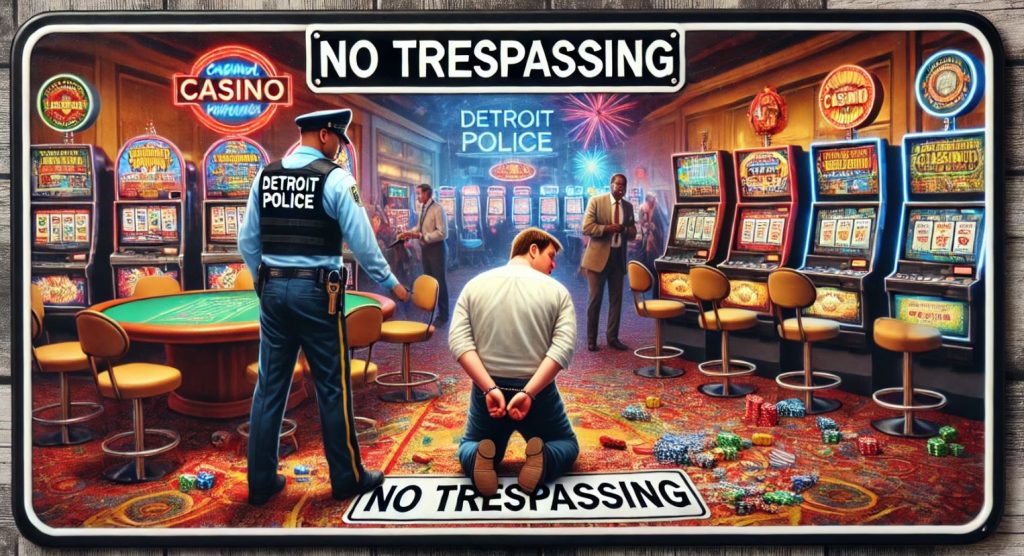Criminal Defense Attorney for Casino and Gambling Crimes
When someone is charged with a crime related to a casino or gambling, they need a top defense lawyer to keep their record clean and prevent them from going to jail.

Casino and Gambling Criminal Defense Attorneys
This law allowed non-Native Americans to own casinos for the first time and provided rules for casino operations. The law governing the 26 casinos in Michigan is complex and covers every aspect of casino and gaming operations. Stringent regulations govern casino operations. The law aimed to ensure fair gaming for casino patrons so that no betters need to worry about equipment tampering, sports betting tampering, or rigged equipment or dealing. The law also seeks to protect casinos from patrons who would attempt to improve their odds unfairly. If you face any gambling or a casino charge, you will want to ensure you are protected and defended by an experienced casino and gambling crimes attorney.
Penalties for Corrupt or Dishonest Gaming Charges
The specific illegal acts that are barred and are criminal acts are so numerous that they cannot all be listed here, but some of the more common offenses are:
- Conducting a gambling operation without a license from the Michigan Gaming Control Board (MGCB): 10 years in prison, 5 years of probation, and a $100,000.00 fine;
- Making false statements to the MGCB in an application for a gaming license: 10 years in prison, 5 years of probation, and a $100,000.00 fine;
- Providing false testimony to the MGCB under oath: 10 years in prison, 5 years of probation, and a $100,000.00 fine;
- Evading license fees or taxes: 10 years in prison, 5 years of probation, $100,000.00 fine plus 3 times the amount of the taxes or fees evaded;
- Bribing someone to attempt to influence an official decision of a member of the MGCB: 10 years in prison, 5 years of probation, a $100,000.00 fine, and a lifetime ban from entering a gambling establishment under the control of the MGCB;
- Casino employee accepting a bribe to influence the outcome of games: 10 years in prison, 5 years of probation, a $100,000.00 fine, and a lifetime ban from entering a gambling establishment under the control of the MGCB;
- Possessing any device to make it possible to cheat, count cards, analyze odds, project the outcome of a game, or any dice, cards, or counterfeit chips designed to be used to cheat: 10 years in prison, 5 years of probation, and a $100,000.00 fine and a lifetime ban from entering a gambling establishment under the control of the MGCB;
- Bribing or attempting to bribe a member of the MGCB or local governmental official directly: 10 years in prison, 5 years of probation, a $100,000.00 fine, and a lifetime ban from entering a gambling establishment under the control of the MGCB;
- Allowing a person under 21 to place bets and wagers at a casino: One year in jail, 2 years of probation, and a $10,000.00 fine.
The laws try to make the gaming experience fair and presumably more fun by tightly regulating both the casinos and the patrons. Given the extensive security and surveillance measures at casinos, it is hard to imagine either the casino or a patron getting away with cheating. It also can be seen that the law stands ready to dish out severe criminal and monetary punishment to anyone who dares to try to take the fun out of casinos. It is essential to consult with a well-respected casino and gambling crimes defense attorney to give an individual the best chance of avoiding fines, jail, and a conviction.

Defenses to Casino and Gambling Charges
Like retail stores with extensive hidden cameras and security personnel watching at all times to prevent shoplifting, casinos have the same, only on steroids. If someone is charged with cheating or outright stealing, you can be sure the entire incident was recorded from several angles and close-ups by a zoom lens camera. If someone attempted to cheat or steal, building a defense could be difficult and require the talent and experience of a top-rated criminal law specialist.
Defenses would depend on the particular circumstances of a charge, such as a patron accused of bribing a dealer could argue they gave chips or cash to a dealer in the form of a tip, not a bribe for better cards. Regardless of the charge and evidence, a top-rated, astute criminal defense expert can always make the situation better. Even if the evidence is such that the case can’t be dismissed and thrown out of court, a seriously experienced defense attorney can improve any case’s outcome. No one should ever attempt to defend themselves or try to explain anything to the authorities.
Casino Voluntary Self-Exclusion and Trespassing
- What is Self-Exclusion? Self-exclusion is a voluntary process in which a person chooses to be banned from entering and gambling at casinos. This program is designed as a form of support for those who recognize they have a gambling problem and wish to take concrete steps to address this issue. When a person enrolls in a self-exclusion program, their name is added to a list that casinos access to enforce the ban.
- Why Choose Voluntary Self-Exclusion? Individuals opt for self-exclusion for various reasons, primarily as a proactive measure to prevent gambling addiction’s adverse effects. It serves as a barrier to temptations and a commitment to personal well-being, particularly for those who have struggled with gambling in the past and are seeking a way to avoid potential financial and personal harm.
- Penalties for Violating Self-Exclusion Violating a self-exclusion agreement can lead to criminal trespassing charges. Criminal trespassing in a casino is punishable by imprisonment for not more than one year, a fine of not more than $1,000, or both. If a self-excluded individual enters or gambles in a casino, they can be escorted out, and any winnings may be forfeited.
- The Role of an Experienced Defense Lawyer If a self-excluded person has an error in judgment and enters a casino, leading to trespassing charges, it’s crucial to have experienced legal representation. A defense attorney skilled in handling casino and gambling-related offenses can provide invaluable assistance. They can help navigate the complexities of the law, work to mitigate penalties, and argue for leniency based on the circumstances of the violation and the individual’s intent to refrain from gambling.
Understanding these components is critical for those enrolled in a voluntary self-exclusion program. LEWIS & DICKSTEIN, P.L.L.C. offers experienced legal counsel to help manage the consequences of violations and support individuals in maintaining their commitment to steering clear of gambling activities. If you find yourself in a situation where you have violated your self-exclusion agreement, contacting a knowledgeable attorney can make a significant difference in resolving the issues effectively and compassionately.

Elite, Experienced Attorneys Defending Clients Facing Casino and Gaming Charges in Michigan
A casino employee or patron facing a felony or misdemeanor change will need the best and most formidable defense attorney available. The punishments are severe, and you will need an attorney who understands the law and how to craft a winnable defense.
The passionate, experienced, and zealous casino and gambling crimes attorneys at LEWIS & DICKSTEIN, P.L.L.C. have successfully represented thousands of clients on felony and misdemeanor charges in Oakland, Macomb, Wayne, Washtenaw, and Livingston Counties and throughout Michigan. We have a well-earned reputation for providing the highest level of defense and aggressive representation, while showing empathy and personalized care for each client.
Call us today at (248) 263-6800 for a free consultation or complete an online Request for Assistance Form. We will contact you promptly and find a way to help you.









